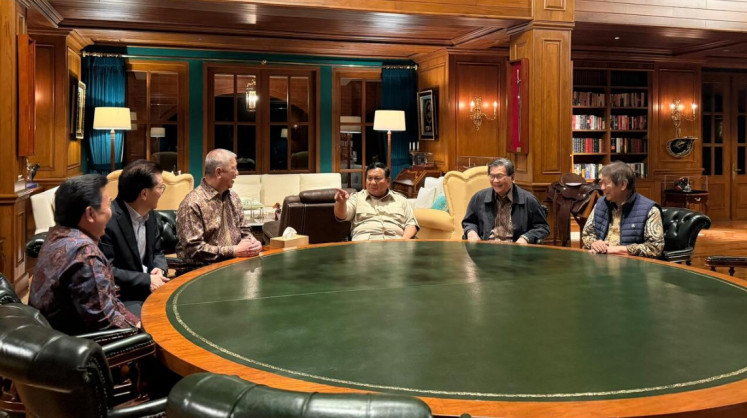Popular Reads
Top Results
Can't find what you're looking for?
View all search resultsPopular Reads
Top Results
Can't find what you're looking for?
View all search resultsWhy enterprise struggles in a nation that rewards titles
It will take more than catchy slogans espousing innovation and entrepreneurship to change an ingrained habit that has evolved over the centuries in tandem with a system that equates authority and power with prosperity.
Change text size
Gift Premium Articles
to Anyone
W
hy are we still surprised when young Indonesians choose stable employment over entrepreneurship? Why the persistent astonishment regarding endemic corruption? Anyone who examines history would recognize the pattern: For centuries, power, not enterprise, was the fastest route to wealth. Corruption is not a recent stain; it is an old inheritance. If many still chase stability today, it is because the past taught their families where safety resides: within the structure, not outside it.
My research among university students shows a clear pattern. Most dream of stability: a fixed salary, clear ladder, predictable life. I once thought the cause was modern, such as family pressure, fear of risk, a lack of role models. But after reading historians such as H.J. de Graaf, Denys Lombard, M. C. Ricklefs, Paul Muñoz and Ong Hok Ham, the cause is revealed as structural, not psychological.
During the old kingdoms and colonial administrations, public office conferred privilege. Formal remuneration was small, yet officeholders were permitted to collect “customary fees”, charge for access and take percentages from trade. Income derived from position, not labor.
This practice persisted over centuries to become embedded culture. Generations watched as prosperity was brought about from authority, not enterprise. Parents advised their children to find a safe job, stay within the system and avoid shame.
Policymakers demanding a surge of young entrepreneurs today thus confront not apathy, but inherited logic. History taught that structure protects while the market exposes. In a society where family obligation is sacred, safety is a moral imperative.
Indonesia’s economy has long been built on structure rather than competition. Power decided who could trade, borrow or survive. From the courts of old kingdoms to contemporary bureaucracy, access to authority meant access to opportunity.
That habit did not vanish after independence; it only changed uniforms. Graduates still see bureaucracy dominate, regulations shift without warning and enforcement remain uneven. They see permits taking months while connections take minutes. They watch political families inherit influence like land.



















